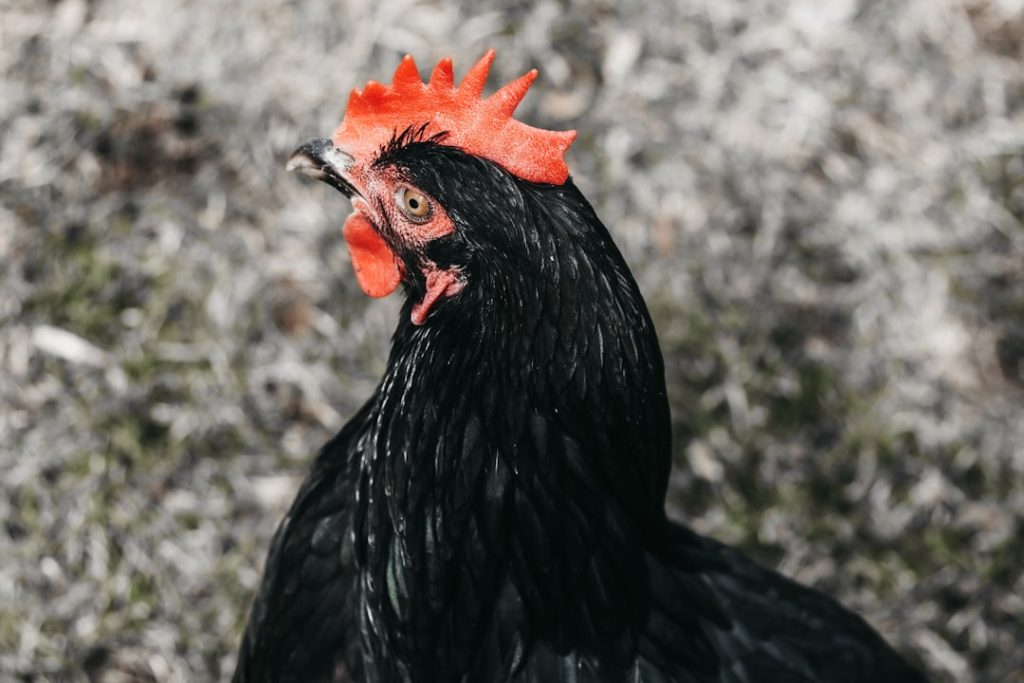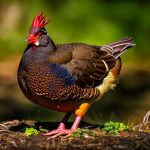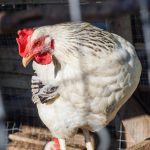Broiler chickens are a specialized breed of poultry raised for meat production. These birds are genetically selected for rapid growth, reaching market weight in approximately 6-8 weeks. Characterized by their white feathers and efficient feed conversion, broiler chickens are widely used in commercial farming operations and contribute significantly to the global food supply.
The successful rearing of broiler chickens requires specific conditions to support their accelerated growth. These include a nutritionally balanced diet, adequate space for movement, proper ventilation systems, and access to clean water. Due to their rapid development, broiler chickens are prone to certain health issues and diseases, necessitating careful management and monitoring.
Understanding the unique attributes and requirements of broiler chickens is crucial for effective poultry farming. This knowledge encompasses aspects such as optimal nutrition, environmental control, disease prevention, and welfare considerations. Mastery of these factors is essential for individuals seeking to engage in or improve broiler chicken production within the poultry industry.
Table of Contents
- 1 Housing and Environment for Broiler Chickens
- 2 Feeding and Nutrition for Broiler Chickens
- 3 Health and Disease Management for Broiler Chickens
- 4 Handling and Welfare of Broiler Chickens
- 5 Marketing and Selling Broiler Chickens
- 6 Regulations and Compliance for Broiler Chicken Farming
- 7 FAQs
- 7.1 What is a broiler chicken?
- 7.2 What are some key factors to consider when keeping broiler chickens?
- 7.3 What type of housing is suitable for broiler chickens?
- 7.4 What should be included in the diet of broiler chickens?
- 7.5 How can temperature and ventilation be managed for broiler chickens?
- 7.6 What are some biosecurity measures for preventing disease in broiler chickens?
Key Takeaways
- Broiler chickens are specifically bred for meat production and have a rapid growth rate.
- Proper housing and environment are crucial for broiler chickens to thrive and reach their full potential.
- Feeding and nutrition play a key role in the growth and development of broiler chickens.
- Health and disease management are essential for ensuring the well-being and productivity of broiler chickens.
- Proper handling and welfare practices are important for the overall health and quality of broiler chickens.
Housing and Environment for Broiler Chickens
Essential Environmental Conditions
The housing should provide adequate space for the birds to move around and access to feed and water. Proper ventilation is essential to remove excess moisture and ammonia from the air, which can lead to respiratory issues in the birds. Additionally, maintaining the right temperature is crucial, as broiler chickens are sensitive to extreme heat or cold.
Optimal Housing Design
The flooring of the housing should be designed to provide good traction and support for the birds’ legs, as well as easy cleaning and waste management. This design will help prevent health issues and promote a clean living environment.
Lighting and Stress Reduction
Proper lighting is also important for regulating the birds’ behavior and promoting growth. The housing should be designed to minimize stress and provide a comfortable environment for the birds to reach their full potential. By creating a suitable housing and environment, broiler chickens can maintain good health, welfare, and productivity.
Feeding and Nutrition for Broiler Chickens
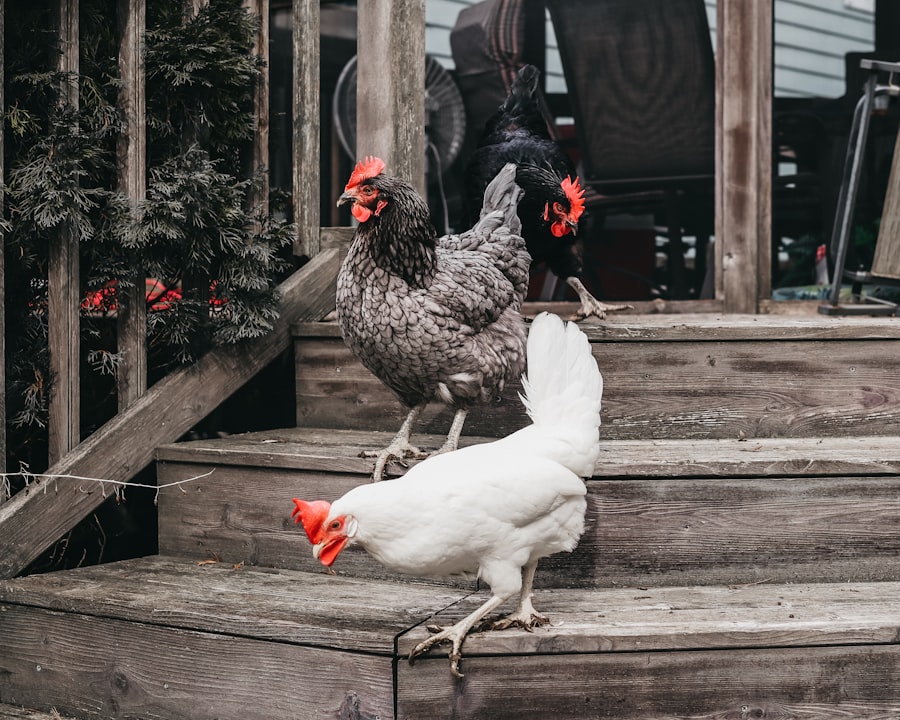
Feeding and nutrition are critical aspects of broiler chicken farming, as they directly impact the birds’ growth, health, and meat quality. Broiler chickens require a balanced diet that provides essential nutrients, including protein, energy, vitamins, and minerals. A high-quality commercial feed is typically used to meet the birds’ nutritional requirements and support their rapid growth.
The feed should be formulated to promote efficient feed conversion and maximize growth rates while minimizing waste. In addition to commercial feed, broiler chickens may also benefit from access to clean water and supplemental feed such as grains or greens. It’s important to ensure that the birds have constant access to fresh water to support their metabolism and overall health.
Proper feeding management is essential to prevent overeating or underfeeding, which can lead to health issues or poor growth rates. Overall, providing a balanced diet and proper nutrition is crucial for the success of broiler chicken farming.
Health and Disease Management for Broiler Chickens
Health and disease management are critical aspects of broiler chicken farming, as these birds are susceptible to various health issues and diseases. Common health problems in broiler chickens include respiratory issues, bacterial infections, parasitic infestations, and metabolic disorders. It’s important to implement biosecurity measures to prevent the introduction and spread of diseases on the farm.
This includes proper sanitation, controlling access to the farm, and monitoring the health of the birds regularly. In addition to biosecurity measures, vaccination programs are often used to protect broiler chickens from common diseases such as Marek’s disease, infectious bronchitis, and Newcastle disease. Regular veterinary care and monitoring can help identify and address health issues early on, preventing widespread outbreaks and minimizing the impact on the flock.
Overall, proactive health management and disease prevention are essential for maintaining the well-being and productivity of broiler chickens.
Handling and Welfare of Broiler Chickens
The handling and welfare of broiler chickens are important considerations for farmers to ensure the birds are treated humanely throughout their lives. Proper handling techniques should be used when moving or transporting the birds to minimize stress and prevent injuries. Additionally, providing a comfortable environment with adequate space, proper ventilation, and access to feed and water is essential for promoting the welfare of broiler chickens.
Farmers should also be mindful of the birds’ behavior and well-being, monitoring for signs of stress or discomfort. This includes observing the birds’ posture, movement, vocalizations, and overall condition. Creating a low-stress environment can help minimize negative impacts on the birds’ welfare and promote healthy growth.
Overall, prioritizing the handling and welfare of broiler chickens is essential for ethical farming practices and ensuring the well-being of the birds.
Marketing and Selling Broiler Chickens
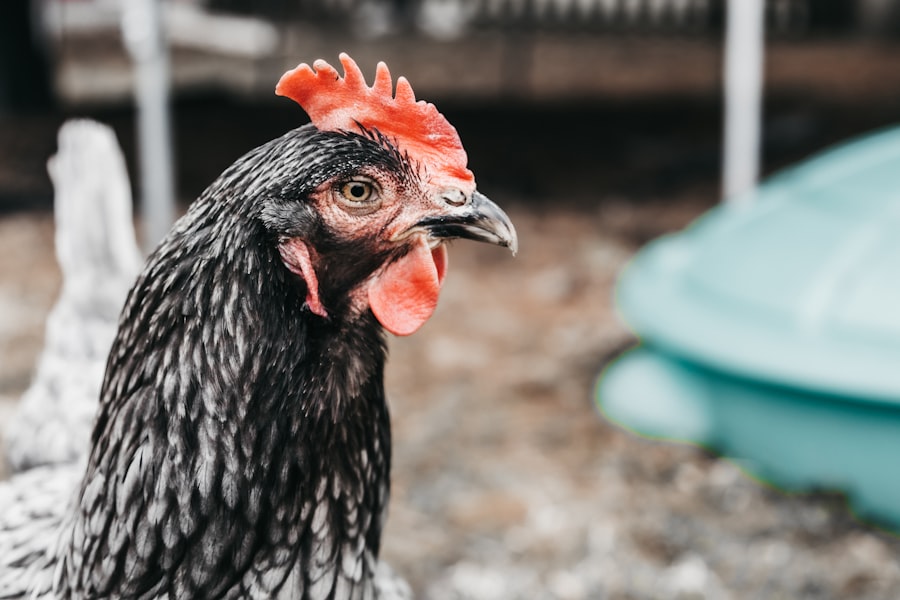
Understanding Market Demand and Consumer Preferences
Farmers should identify their target market and understand consumer preferences for poultry meat products. This may involve selling directly to consumers through farmers’ markets or establishing relationships with local retailers or restaurants.
Developing a Strong Brand Identity and Competitive Pricing
Developing a strong brand identity and promoting the quality of the meat products can help differentiate the farm’s offerings in the market. Pricing strategies should be based on production costs, market trends, and competition in the industry.
Ensuring Product Quality and Compliance with Regulations
Farmers should also consider packaging options, labeling requirements, and compliance with food safety regulations when preparing their products for sale. Establishing reliable distribution channels is crucial for reaching customers efficiently and ensuring product freshness.
Regulations and Compliance for Broiler Chicken Farming
Broiler chicken farming is subject to various regulations and compliance requirements at local, national, and international levels. Farmers must adhere to standards related to animal welfare, food safety, environmental protection, and labor practices. This may include obtaining permits or licenses for operating a poultry farm, complying with zoning regulations, implementing waste management practices, and following guidelines for animal care and handling.
In addition to regulatory requirements, farmers should stay informed about industry standards and best practices for broiler chicken farming. This may involve participating in training programs or seeking guidance from agricultural extension services or industry organizations. Compliance with regulations is essential for maintaining the farm’s reputation, ensuring product quality, and minimizing legal risks.
Overall, understanding and adhering to regulations is crucial for responsible broiler chicken farming practices that prioritize animal welfare, food safety, and environmental sustainability. In conclusion, broiler chicken farming requires a comprehensive understanding of the birds’ characteristics, needs, and best practices for management. Providing suitable housing and environment, balanced nutrition, proactive health management, ethical handling practices, strategic marketing efforts, and compliance with regulations are all essential components of successful broiler chicken farming.
By prioritizing the well-being of the birds while implementing efficient production practices, farmers can contribute to sustainable poultry production while meeting market demand for high-quality meat products.
If you’re interested in learning more about what to feed ducks, check out this article on Poultry Wizard. It provides valuable information on the best diet for ducks and how to keep them healthy and happy.
FAQs
What is a broiler chicken?
A broiler chicken is a type of chicken that is specifically bred and raised for meat production. These chickens are typically raised for a short period of time, usually around 6-8 weeks, before being processed for their meat.
What are some key factors to consider when keeping broiler chickens?
Some key factors to consider when keeping broiler chickens include providing proper housing, ensuring access to clean water and high-quality feed, managing temperature and ventilation, and implementing biosecurity measures to prevent disease.
What type of housing is suitable for broiler chickens?
Suitable housing for broiler chickens should provide adequate space, proper ventilation, and protection from predators and the elements. It should also be easy to clean and maintain to ensure the health and well-being of the chickens.
What should be included in the diet of broiler chickens?
The diet of broiler chickens should consist of high-quality, nutritionally balanced feed that is specifically formulated for meat production. This feed should provide the necessary nutrients, including protein, vitamins, and minerals, to support healthy growth and development.
How can temperature and ventilation be managed for broiler chickens?
Temperature and ventilation for broiler chickens can be managed by providing proper insulation and ventilation in the housing, as well as using heating or cooling systems as needed to maintain a comfortable and healthy environment for the chickens.
What are some biosecurity measures for preventing disease in broiler chickens?
Biosecurity measures for preventing disease in broiler chickens include controlling access to the farm, implementing strict hygiene practices, and regularly monitoring the health of the chickens. Additionally, limiting contact with other poultry and wild birds can help reduce the risk of disease transmission.
Meet Walter, the feathered-friend fanatic of Florida! Nestled in the sunshine state, Walter struts through life with his feathered companions, clucking his way to happiness. With a coop that’s fancier than a five-star hotel, he’s the Don Juan of the chicken world. When he’s not teaching his hens to do the cha-cha, you’ll find him in a heated debate with his prized rooster, Sir Clucks-a-Lot. Walter’s poultry passion is no yolk; he’s the sunny-side-up guy you never knew you needed in your flock of friends!

